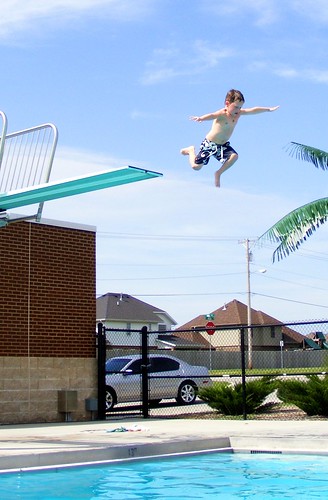“Flexibility, patience, and a sense of humor characterize the successful Peace Corps volunteer,” or PCV, as the recruiter actually said, using the acronym that would soon became part of our everyday vocabulary. He may have been referring to the application process as much as to our actual service.
Surely, in dealing with the enormous bureaucracy that was the Peace Corps when we first applied in June of 2002 (over 7,000 volunteers in more than 70 countries) and maneuvering through the requisite paper trail of our fifty-five plus years — proof of our marriage and respective earlier divorces, myriad medical tests and retests, and documentation explaining how we expected to fulfill our ongoing financial obligations (like our monthly mortgage payment) — patience, flexibility, and a sense of humor were indeed key.
The Peace Corps does allow you to choose your region, as we’d read on their website, unless you want to go with a spouse. We learned this detail in August, two months after our online applications went off when a young, energetic, recently returned Peace Corps volunteer interviewed us at the regional office on Varick Street in lower Manhattan in mid-August.
“Placements for married couples are more limited than those for singles,” he explained diplomatically. “We must place you at a site that needs more than one volunteer.”
Our options were further reduced by Woody’s determination to teach English. It didn’t matter to me. My resume was an eclectic mix of fundraiser, teaching fellow, and psychotherapist — hardly the makings of a traditional volunteer — and I was curious to see what the Peace Corps would have me do.
But Woody had wanted to teach English since he was eighteen years old, and he looked to the Peace Corps when he retired with the expectation that he would mutate into either his talented prep school English teacher, or his college French teacher, a native speaker from Alsace.
He wanted, in short, to be the native speaker and resident authority on all things English (a.k.a. American) in the English department of whatever university the Peace Corps would place him.
Being married and teaching English meant we had to go to one of two regions: Asia or the former Soviet Union. Woody assumed it would be China and began to study Mandarin. I assumed it would be Bulgaria when a friend introduced me to that country’s Peace Corps director and I began an email correspondence with him. Obviously, neither Woody nor I had a clue where we’d go.
With our interview behind us, our fingerprints cleared by the FBI, and our documents in order, we received our official letter of “nomination” in November 2002. Now would begin the lengthiest phase — at least for us — obtaining our medical and dental clearance.
At our ages, our medical and dental histories were more extensive than the twenty-somethings who normally apply.
- We reconstructed and documented some thirty years of medical care.
- We had caps put on some back teeth.
- And, thanks to marking “yes” when the initial Peace Corps medical form asked, “Does kneeling, squatting, or sitting cross-legged cause you leg, muscle or joint pain to the point that you cannot do these activities?” I had six months of physical therapy to help me sit cross-legged.
All at our own expense.
Early on, I often said, “Perhaps we’ll wake up one morning and find we’ve come to our senses.” But we never did; we just kept moving forward, one step at a time, up that metaphorical high dive, preparing for our next jump.
(That’s Heather Hoadley’s photo, once again. Thanks)
We knew we would be leaving for Peace Corps service; we never doubted we’d eventually pass the medical hurdles. We just didn’t know when or where we’d be sent. What to do?
With our Philadelphia home empty and on the market, we roosted in our cabin on Chincoteague Island, Virginia while we finalized some additional medical tests.
But what should have been a few months turned into seventeen when both of my sons, in separate calls, phoned to tell me their wives were pregnant, due on September 27th, both of them. I couldn’t help but smile; they’d always been competitive, but this was ridiculous.
Woody and I put our Peace Corps application on temporary hold and settled more deeply into life on Chincoteague Island. Woody continued work on the eleven-foot sailboat he’d begun in our Philadelphia basement, transferring it to the front porch of our Virginia cabin, behind a curtain of plastic during the few winter months Chincoteague gets.
I didn’t go back to work or begin any long-term projects. Instead, I discovered gardening in Virginia’s sandy soil and delved into my family’s genealogy, picking up where my grandmother had stopped twenty-five years earlier: with five generations of women and no men.
And I began to miss my former Philadelphia life with an intensity that caught me unawares.
Buddhism teaches that our suffering comes from our attachments. Those two years preparing for our Peace Corps adventure brought me face to face with attachments I’d never recognized as such:
- books that I had had since high school,
- clothes I was sure I’d wear again “some day,”
- kitchen gadgets we thought we couldn’t live without, and
- three hundred slides of my 1971 post-college trek through Europe, slides that hadn’t seen a projector in twenty years.
The loss I grieved the most — until we gave away our dog — was the relatively new career I’d established as a Gestalt psychotherapist. More than a job, it had provided me an enormous degree of satisfaction after so many years in careers behind a desk, pushing papers, seeking “the big picture.”
I relished the face-to-face contact with individuals who were eager to understand themselves better, as I had once been. I could offer them an ear, lend them a hand, even give them a boot once or twice.
Now that I was no longer the person others came to for help, who was I?
Now that I could no longer say, “I’m a psychotherapist,” what was I?
I’d had a vision of myself as an eighty-something-year-old, doddering down the Victorian stairs of my Philadelphia twin to let my clients in. Along with my present-day career, I had to let that particular dream go and with it my once carved-in-stone plans for my future.
I found temporary refuge from my grief in the adage, “Happiness lies less in getting what we want, than in wanting what we get.”
So I focused on what I’d “gotten,” what I could keep:
- good health (soon to be verified by the US government),
- a husband who loved me and listened to me whenever I asked,
- new friends in Chincoteague,
- old friends in Philadelphia and Ohio, and
- family: my two sons and their growing families, and my mother.
My health and husband came with me. My friends and family, through the magic of technology, would never be far.
Part II of our continuing saga, now told in selected “deleted scenes,” will come next Wednesday. Questions about the process? Comments? A similar story you’d like to share? Please feel free to leave a comment below.


Marian Beaman
Your comment on Kathy Pooler’s website led me to your own which describes a slice of life I know very little about, the Peace Corps. Interesting!
Janet
Thanks so much, Marian, and welcome. Good to have you
Shirley Hershey Showalter
I love this description of your preparations for leaving. Excellent character development. I identified with you every step of the way, including the difficulty of giving up our attachments. Maybe if I apply for the Peace Corps I will do the elective dental work I’ve been prolonging too.
Janet
Hello Shirley, How very nice to have you stop by. Thank you for the thumbs up; that means a lot, coming from you with your brand new book, Blush, recently out and your book tour underway. I’m thrilled.
I certainly hope you’ll look into the Peace Corps and see if it’s for you. Just don’t do it now; I just wrote to our local recruiter about something and discovered the Peace Corps offices are shut down too. This is the first the government shut down has affected me. And I don’t like it one bit.
ML Gomes
Janet, I’m impressed. This took tremendous effort and commitment before you even left home. I considered the attachments you gave up and I recognize that I have those same attachments, especially books and photo’s. Thanks for making me look at myself in this light.
Janet
Hi ML. So glad you stopped by for a visit. Yes, seeing these “things” as attachments helped me let go of them, though some were harder than others. I’m so glad it’s helped.
You pose a great question on your blog this week. I’ll be back to post a response soon.